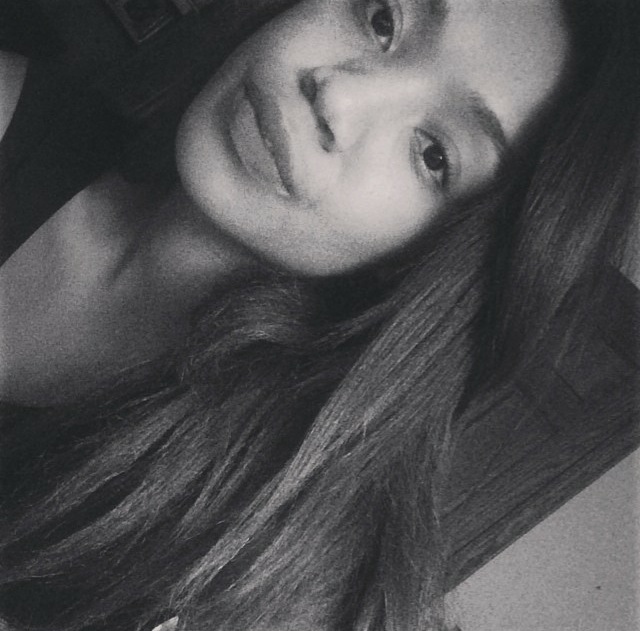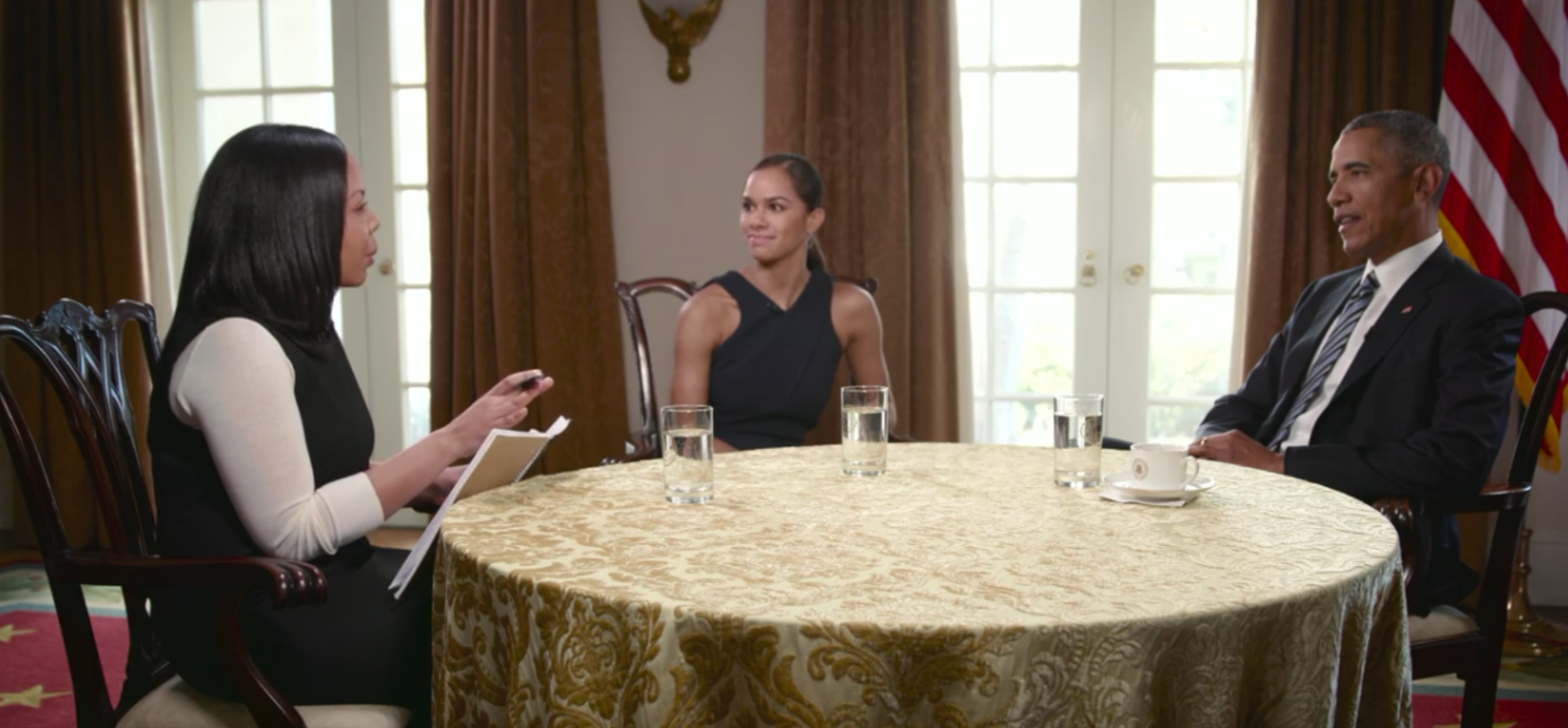President Obama Reveals The Truth About Beauty Standards For Black Women

By:
In an interview with TIME magazine, President Barack Obama joined world famous ballet dancer Misty Copeland and got real about the pressure on women of color to conform to beauty standards in America.
In the 30-minute interview with TIME, for which the full transcript was released Monday, Pres. Obama and Copeland addressed women's beauty standards and how they particularly affect black women.
 Time - time.com
Time - time.com
As the first African American principal ballet dancer, Copeland opened up about her struggle to hold on to her identity as a black woman in a profession in which they are fairly underrepresented. In the interview, Copeland talked about her struggle to fight off "pancaking her skin" a lighter color in order to fit in with the other ballerinas.
For Pres. Obama, the issue is also personal. As the father of two young black daughters, the president opened up about their experiences feeling disadvantaged in the world of beauty.
"And so Michelle and I are always guarding against that. And the fact that they’ve got a tall gorgeous mom who has some curves, and that their father appreciates, I think is helpful. I do think that culture’s changing for the younger generation a little bit more. You see Beyoncé or you see some of these pop stars and what both white, Latino, black children are seeing as representative of beauty is much broader than it was when I was a kid. You just didn’t see that much representation. And that’s healthy and that’s encouraging. But it’s still a challenge. I mean Malia’ll talk about black girl’s hair and will have much opinions of that. And she’s pretty opinionated about the fact that it costs a lot, it takes a long time, that sometimes girls can be just as tough on each other about how they’re supposed to look." — Pres. Barack Obama, TIME
And while it is true that society's concept of beauty is becoming more inclusive with the help of curvy celebrities like Beyoncé, Jennifer Lopez and Rihanna, black women still grapple with self-acceptance, as noted by HuffPost Black Voices Culture Writer Zeba Blay.
"It's a messed-up system, but what I've always struggled with is the thing we never really want to talk about: the hierarchy of the system. For black women, the harsh realities of beauty standards are twofold: we're socialized to feel less than beautiful specifically because we are black. Why else did a black model's naturally large lips receive so much hate in comments on Instagram last week, when big lips on white women like Kylie Jenner and Angelina Jolie are praised? The things that make us black women, our big lips or big butts or kinky hair, are singled out as the main factors that we must change about ourselves in order to be more attractive, in order to be more acceptable."
There's also research to suggest that Black women face unique challenges in the dating world. One study on OkCupid and another study from a Facebook dating app found that black women are considered to be the least desirable by men, and that men were least likely to initiate contact with them.
But movements like #BlackGirlMagic, which is a hashtag used to celebrate the "universal awesomeness" of black women, according to the HuffPost Style's Julee Wilson, is helping black women value and take pride in their identities.
"But to have movements like Black Girl Magic, I think it couldn’t be more positive for a young black girl to see that it’s okay to be yourself, it’s okay to not have to transform and look like what you may see on the cover of a lot of magazines. That you are beautiful, that it’s possible to succeed in any field that you want to, looking the way that you do. With your hair the way it is. I think all of that is so extremely important and something that I’m constantly celebrating. — Misty Copeland, TIME
Though the conversation focused on the unique challenges faced by Black women when it comes to beauty standards, Pres. Obama noted that women of all colors face incredible difficulty living up to society's concept of beauty.
"[B]eing cute in a certain way. And are you wearing the right clothes? And is your hair done the right way. And that pressure I think [has] historically always been harder on African American women than just about any other women," Pres. Obama said. "But it’s part and parcel of a broader way in which we socialize and press women to constantly doubt themselves or define themselves in terms of a certain appearance."
